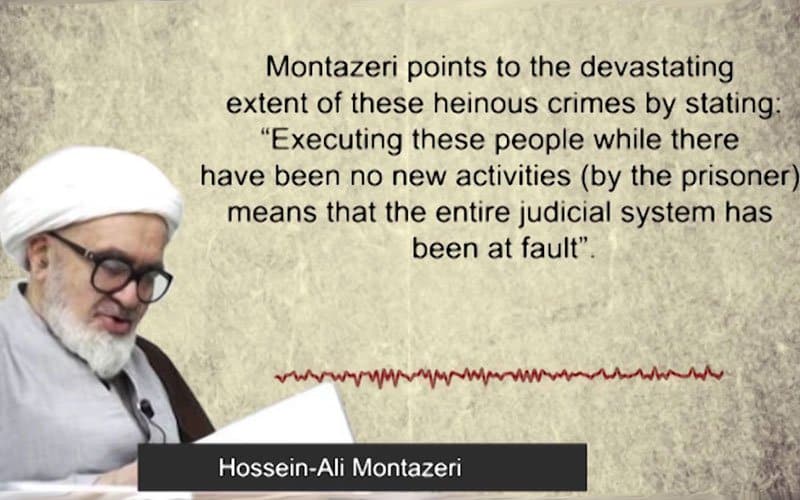Some years ago, South Africa was under apartheid rule, where racism was law and part of the state’s procedures. The greater part of the populace had no rights, and many lives were lost. Likewise, memories of World War II are still fresh in the minds of our older generation. Nazi soldiers were allowed extermination of innocent people and anything that stood in their way. Human dignity lost its meaning at that time. A question comes to mind, for our present time, “are, by any means, the daily misdeeds by the present regime in Iran any different than those of Nazi executioners or the racists of the apartheid South Africa?”
Reports of the 1988 massacre, in which 30,000 political prisoners in Iran were rounded up and executed in groups over a 3-4 month period, reveal that the “religious” tyranny had formed a “Death Commission” that sent before death squads all those still loyal to their beliefs in freedom and democracy.
Building gallows and torture chambers have been first priorities since the fundamentalist state assumed power thirty eight years ago. The system of Ayatollahs, or as they call it the “Islamic Republic,” has pushed itself forward by eliminating others. Forming a “Death Commission” was not limited to the 1988 massacre. This is a regime that, just like the Nazis, has spread death through its repression, terrorism and huge implementation of the death penalty. This regime has to be rejected, just like apartheid or Nazism.

A statement released recently by the UN General Assembly shows various concerns related to the appalling number of violations of human rights in Iran. The UN Special Rapporteur on human rights has been denied access to Iran, further complicating the situation. The report, which estimates the number of executions to be at least 966 cases in 2015, also provides details of human rights abuse in 2016, stating that Iran is currently the country “with the world’s highest death penalty per capita.” The report also indicates, “A large proportion of the executions take place without a fair trial or the prisoners being able to access basic human rights, such as requesting a lawyer or seeing their families while in prison. ‘Mock trials’ often last only a few minutes, and fall short of the article 14 of the Covenant to which Iran is a State Party. Earlier in August, 25 Sunni prisoners were executed without a fair trial. Women, foreign nationals, and children are often among those executed.” The report also adds, “Iran has also seen an increased number of cases, where religion has been the motive for discrimination and human rights abuse.”
Sadeq Larijani, the Chief Justice of the Iranian regime, has stated, “When did we have such an inclination? … This claim that executions were not useful is irrelevant. I urge all prosecutors across the country not to delay the implementation of the verdicts, and carry them out once they are issued.” Documents published by the Iranian opposition, People’s Mojahedin Organization of Iran (PMOI), reveal that the government of Iran, since its emergence, thirty eight years ago, has put to death more than 120,000 of its political dissidents only. There are no statistics of those Iranians and non-Iranians killed or maimed in attacks by terrorist groups in the region Iran supports and funds. Iraq, Yemen, Lebanon as well as Bahrain and Afghanistan are countries that Iran-backed terrorist groups have murdered many of their innocent citizens. Iranian officials openly admit their support for the Syrian dictator, Bashar Al Assad.
A recent report by the National Council of Resistance of Iran (NCRI) quotes the Iranian regime’s Justice Minister, Mostafa Pour-Mohammadi, who was allegedly a member of the “Death Commission” in the summer of 1988, speaking in an interview with the state news agency IRNA on September 30, “One of the punishments for a corrupt person is execution. There are cases in which someone is a source of corruption and his existence will bring about nothing but corruption.”
Sixty years ago the world decided to congregate against German Nazis, before they destroyed the lives of more human beings. The present regime in Iran, with all its executions and terrorism, with its blatant violations of human rights at home, is a great danger to global peace and security. It must be contained. Western governments should not put at ransom the world’s security for economic or political interests. The regime in Iran should be isolated as long as it carries on torture and execution. That would make our earth safer and nicer.








